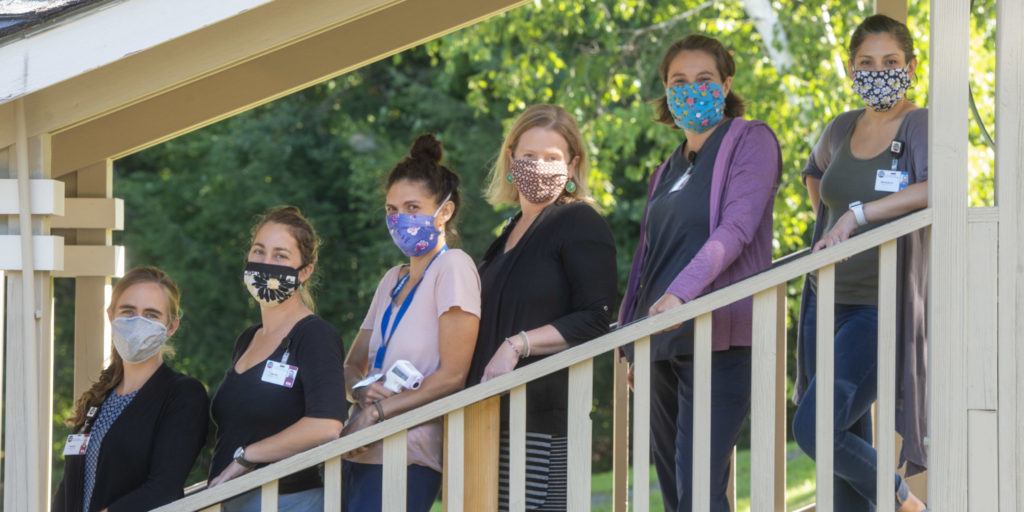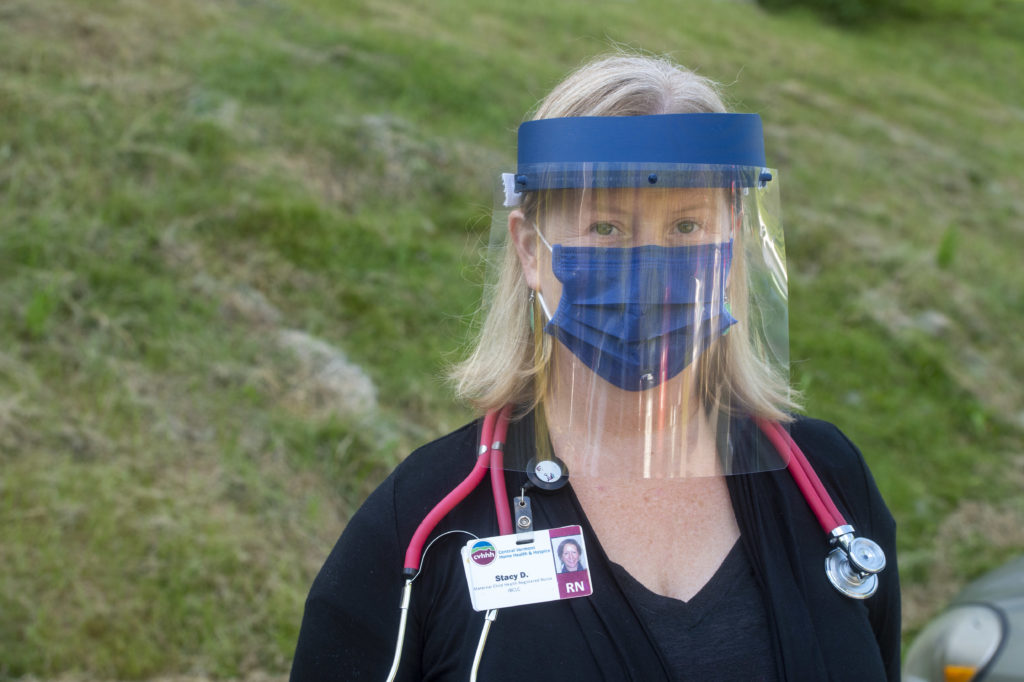Around the world, August is known as Breastfeeding Awareness Month. At Central Vermont Home Health & Hospice (CVHHH), we honor and support breastfeeding awareness and education every day. In-home lactation education and support is one of the services offered by our Maternal-Child Health (MCH) team of Registered Nurses.

Katy Leffel, RN, leads CVHHH’s team of nine MCH registered nurses, six of whom are pictured above, and is one of the three MCH nurses to receive extensive training and certification as an International Board-Certified Lactation Consultant (IBCLC). Katy has worked as a maternal-child health nurse for nine years. Her top priority is the health and safety of her clients and their families, especially during the coronavirus pandemic. Here, Katy offers tips for new and expectant mothers about breastfeeding.
If possible, Katy recommends taking time before your baby arrives to read up on the first few days of post-partum milk production. During pregnancy, your body produces colostrum, a nutrient-rich liquid that is a fantastic, natural immune booster. About two to five days after giving birth, your body switches gears to produce breast milk. Katy reminds her clients that the day their breast milk comes in can be emotional. “Your body is going through a hormonal shift, and many women feel overwhelmed,” Katy says. “Give yourself space and time to process your emotions and keep breastfeeding through it.”
A newborn baby should feed very frequently. Katy says to plan on approximately 12 feeding session every 24 hours. “Often, many new mothers are exhausted, and they are happy if their baby sleeps for a four- or six-hour stretch,” Katy says. “Initially you want to have your baby eating every few hours. When a baby goes for too long without eating, they lose energy and have a harder time breastfeeding.”
Katy says that due to the pandemic, many women are going home from the hospital earlier than is typical. She noticed that some of her clients did not feel as confident breast feeding. Katy emphasizes how important is to speak with a professional if you have any questions. “There are so many aspects to breastfeeding,” says Katy. “The most valuable thing a new mother can do is have an assessment done by an experienced lactation professional to address challenges and create a plan. This maximizes the baby’s health and will relieve mom’s anxiety.”

Since the outbreak hit, Katy and her team have taken maximum precautions to protect their clients and themselves, including donning surgical face masks and face shields for all visits. See one of our MCH registered nurses, Stacey Davis, ready for a home visit. In addition, nurses conduct CDC-recommended client screens before they enter a home and screen themselves daily. “I want mothers and families in our community to know that it is safe to get support. We have taken all necessary steps to minimize the risk of exposure for our staff and clients.”
Ready to take the next step?
CVHHH’s Maternal-Health team conducts in-person lactation assessments and consultations seven days a week, including holidays. They accept most forms of insurance, including Blue Cross & Blue Shield of Vermont and Medicaid, which cover lactation consultations in home.
Learn More Click here to see a complete list of in-home Maternal-Child Health services offered by CVHHH.
Schedule an in-home visit To schedule an in-home visit, contact Katy Leffel, 802-224-2209 or kleffel@cvhhh.org.